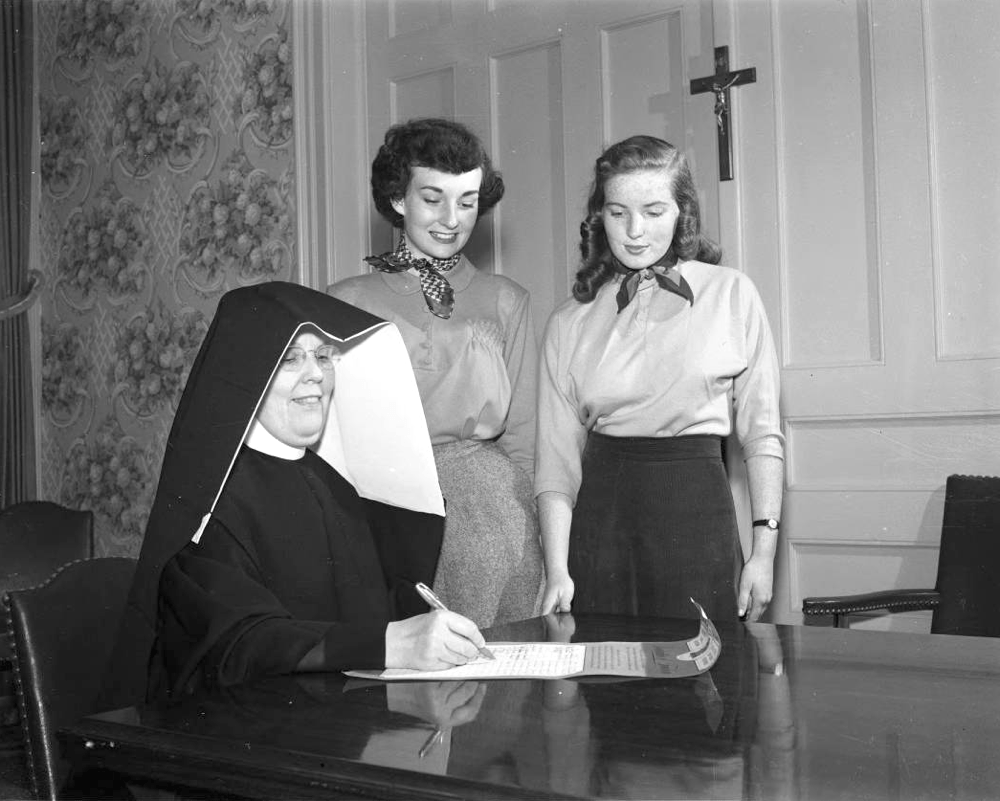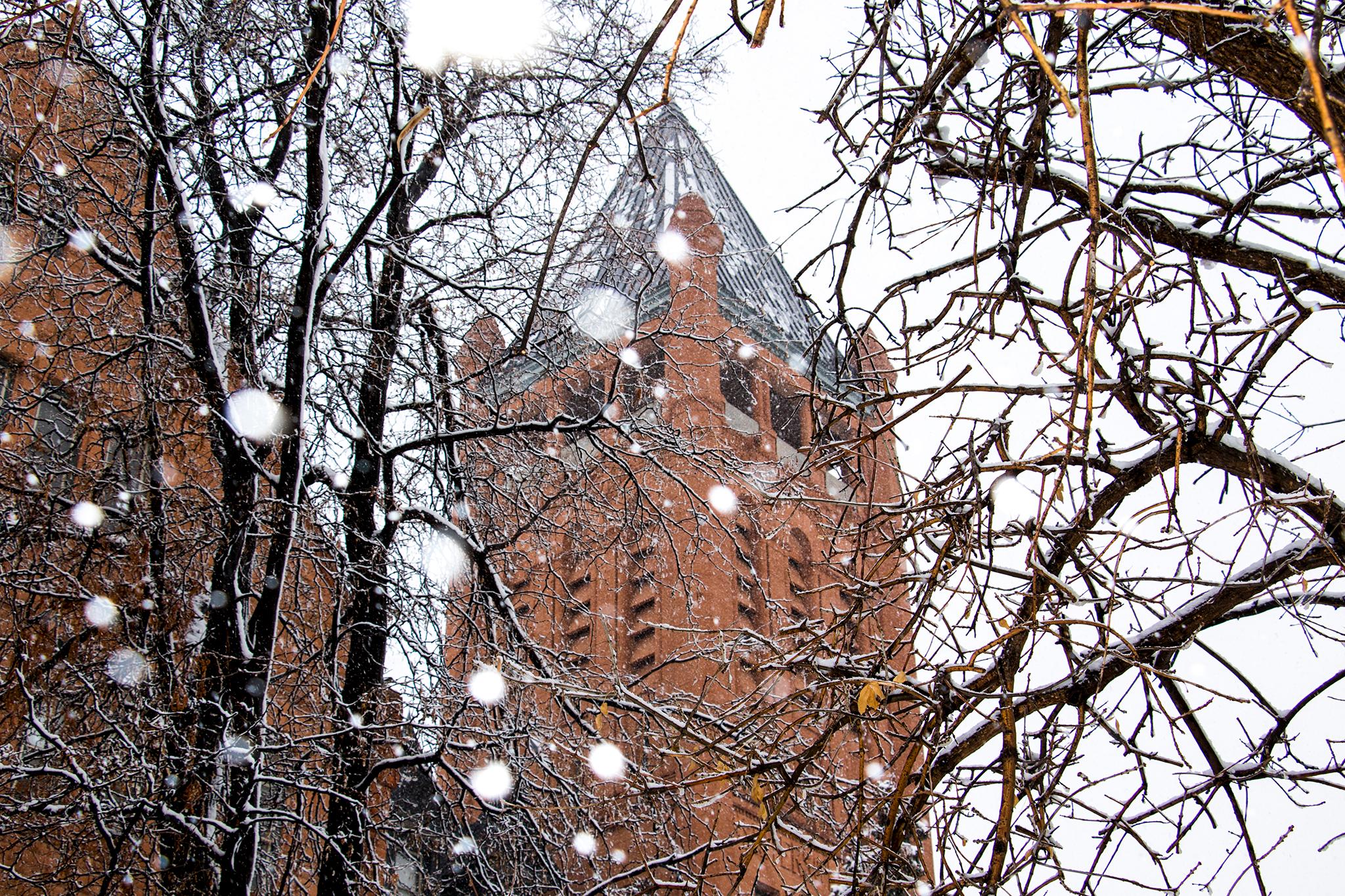Denver's City Council has approved a vision meant to ensure that the legacy of Loretto Heights lives and that the area's future includes affordable housing and beloved views.
Even supporters of the Loretto Heights Small Area Plan expressed concerns, including about who got to participate in the process that created it and how questions about historic preservation and traffic would eventually be answered.
The City Council vote came after a series of well-attended public meetings and initial approval from the Planning Board and the council's Land Use, Transportation and Infrastructure committee.
More than 40 people signed up to make comments Monday night. That and earlier feedback illustrated how strongly many in Denver feel about the area and about the hilltop educational campus at its heart.
Preserving and respecting buildings, including a theater, of the Loretto Heights Academy, established by nuns more than a century ago, has been a chief concern of City Councilman Kevin Flynn. Flynn represents the district where the campus sits, helped drive the community process that resulted in the plan, and voted for it on Monday.
With Monday's approval from the council, the plan becomes part of Denver's Comprehensive Plan 2040 and establishes an official guide for making decisions about future land use and transit options in the Loretto Heights area. The plan's ambitions were spelled out in documents staff prepared for council members:
"The Loretto Heights Small Area Plan establishes a criteria for maintaining the character and development patterns in established residential neighborhoods, guide sustainable growth, new growth within the community centers and corridors in the plan area and honor the rich history of the Loretto Heights campus through the preservation and reuse of historic buildings and sensitive infill. The plan is intended to be flexible to accommodate opportunities that arise, and be able to adapt and respond to new challenges over the coming years."
Anything so ambitious comes with a caveat. The staff document added: "The vision will take many years to achieve."
Mark Witkiewicz's Westside Investment Partners in July 2018 paid $16.5 million for the campus of about 70 acres where Sisters of Loretto nuns founded a school in 1891. He told council Monday that he next has to tackle a large project approval process, zoning questions and other steps that will allow Denverites chances to shape the details of the area's future.
Councilwoman Amanda Sandoval noted fears Loretto Heights neighbors have expressed about possible displacement from what is now a largely Hispanic area. She urged citizens to keep pushing for affordable housing and historic preservation,
"We have a new council here in front of you and we are listening," she said before voting in favor of the plan.
Sandoval was among several council members who had relatives who were educated by the Loretto nuns, The Harvey Park site has been home to the nuns' Loretto Heights Academy, then Loretto Heights College and most recently Colorado Heights University, which closed in 2017. Much of the campus has been in disuse and vulnerable to vandals since Colorado Heights University closed.
Only Councilwoman Candi CdeBaca, like Sandoval a newly elected member, voted no Monday. CdeBaca had had sharp questions about whether Hispanic community members had been adequately consulted. Councilman Chris Herndon was absent when the vote was taken late Monday.
Westside's developer, ACM, is proposing a walkable neighborhood of businesses and single- and multi-family homes, including 68 units in what was once a dormitory that will be sold at below-market prices. Witkiewicz told council members Monday that more affordable housing was planned, but did not provide specifics.
City Council last month voted to approve a mechanism for borrowing millions of dollars to be repaid with new property taxes for infrastructure for the development. According to documents presented before that vote, the development will be home to about 2,500 people with some 1,000 frequenting the businesses during the day. Work is expected to start in 2020 and take five years to complete.
Among those supporting the small area plan were the Loretto nuns. In a letter to the city, Sister Barbara Nicholas, president of the Kentucky-based Sisters of Loretto, cited plans for affordable housing and hopes that the theater would be preserved.

Nicholas noted that while planning for the preservation of a campus cemetery where nuns are buried is still underway, "we do want to acknowledge our appreciation for the careful attention paid to the history of the campus, to honor the educational services provided during the last 125 years."
"We commend the intentions to both honor the legacy as well as to bring new life to the campus," Nicholas said.
Witkiewicz told council Monday that he was committed to preserving the cemetery and other parts of the campus.
Councilman Flynn had started Monday's discussion with a call for a moment of silence in memory of Patricia Jean Manion, a Loretto nun who served as the last president of Loretto Heights College, from 1967 to 1972. Manion died recently.
Neighborhood organizations, Loretto Heights alum and the neighboring city of Sheridan also expressed support, with some saying Monday they would watch developments closely to ensure promises of affordability and equity were kept, and that traffic congestion does not result.
Dissenters spoke up as well.
Xochitl Gaytan, president of the Harvey Park Community Organization, told council members Monday that Hispanics and other minorities had not been properly consulted in the drafting of the plan and now faced being pushed out of the area, in part by the increased property taxes council already has approved for infrastructure for the planned development. She called on council members to vote no to prevent gentrification.
"We elected you to hold developers accountable to those you represent," Gaytan said.
Irene Aguilar, who heads a city task force charged with addressing gentrification, answered questions from Flynn during the hearing. She said a true commitment to affordable housing would help keep families with a range of incomes in the Loretto area.
"I think done correctly there's a lot of potential here," Aguilar said.












